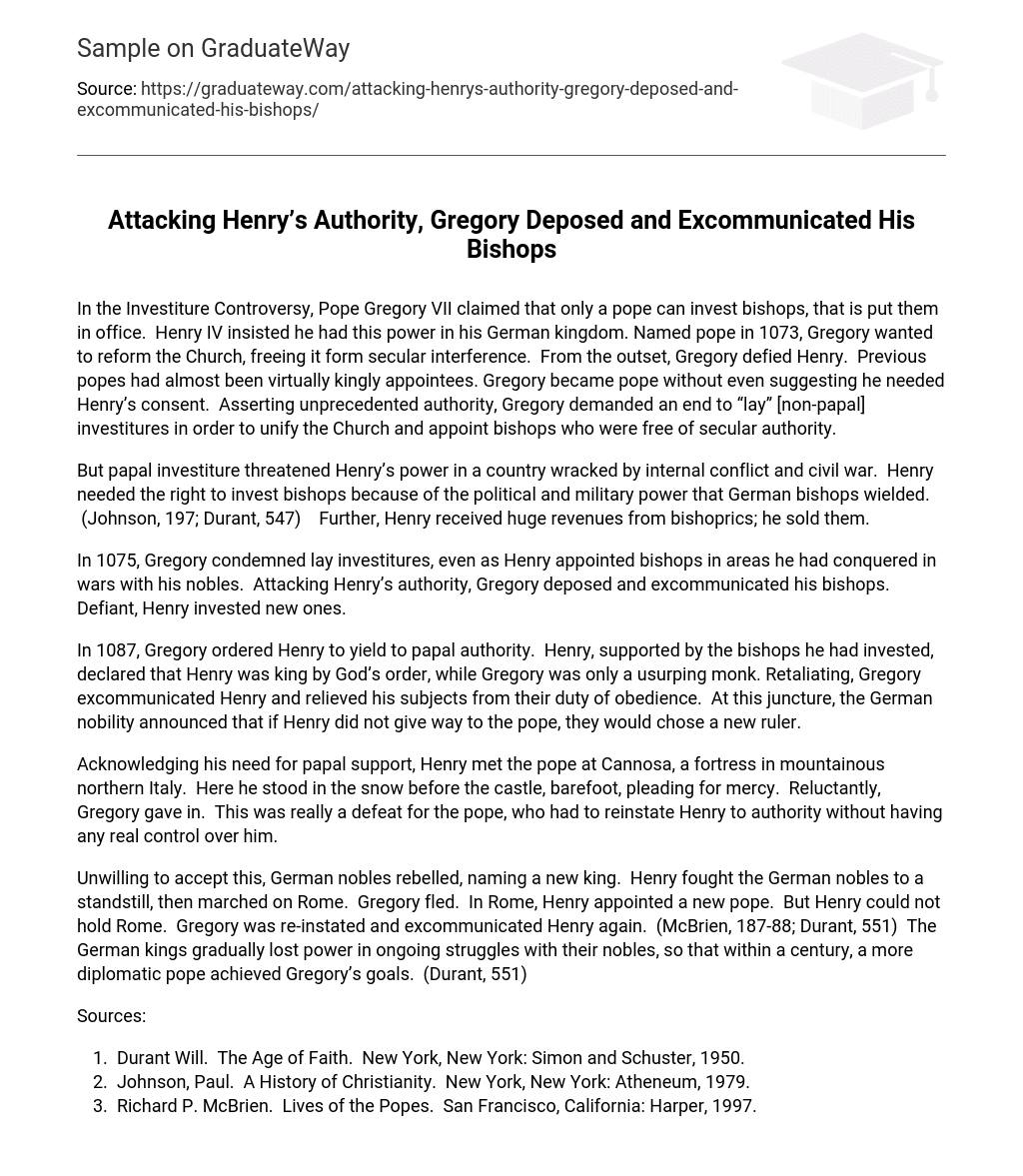In the Investiture Controversy, Pope Gregory VII claimed that only a pope can invest bishops, that is put them in office. Henry IV insisted he had this power in his German kingdom. Named pope in 1073, Gregory wanted to reform the Church, freeing it form secular interference. From the outset, Gregory defied Henry. Previous popes had almost been virtually kingly appointees. Gregory became pope without even suggesting he needed Henry’s consent. Asserting unprecedented authority, Gregory demanded an end to “lay” [non-papal] investitures in order to unify the Church and appoint bishops who were free of secular authority.
But papal investiture threatened Henry’s power in a country wracked by internal conflict and civil war. Henry needed the right to invest bishops because of the political and military power that German bishops wielded. (Johnson, 197; Durant, 547) Further, Henry received huge revenues from bishoprics; he sold them.
In 1075, Gregory condemned lay investitures, even as Henry appointed bishops in areas he had conquered in wars with his nobles. Attacking Henry’s authority, Gregory deposed and excommunicated his bishops. Defiant, Henry invested new ones.
In 1087, Gregory ordered Henry to yield to papal authority. Henry, supported by the bishops he had invested, declared that Henry was king by God’s order, while Gregory was only a usurping monk. Retaliating, Gregory excommunicated Henry and relieved his subjects from their duty of obedience. At this juncture, the German nobility announced that if Henry did not give way to the pope, they would chose a new ruler.
Acknowledging his need for papal support, Henry met the pope at Cannosa, a fortress in mountainous northern Italy. Here he stood in the snow before the castle, barefoot, pleading for mercy. Reluctantly, Gregory gave in. This was really a defeat for the pope, who had to reinstate Henry to authority without having any real control over him.
Unwilling to accept this, German nobles rebelled, naming a new king. Henry fought the German nobles to a standstill, then marched on Rome. Gregory fled. In Rome, Henry appointed a new pope. But Henry could not hold Rome. Gregory was re-instated and excommunicated Henry again. (McBrien, 187-88; Durant, 551) The German kings gradually lost power in ongoing struggles with their nobles, so that within a century, a more diplomatic pope achieved Gregory’s goals. (Durant, 551)
Sources:
- Durant Will. The Age of Faith. New York, New York: Simon and Schuster, 1950.
- Johnson, Paul. A History of Christianity. New York, New York: Atheneum, 1979.
- Richard P. McBrien. Lives of the Popes. San Francisco, California: Harper, 1997.





